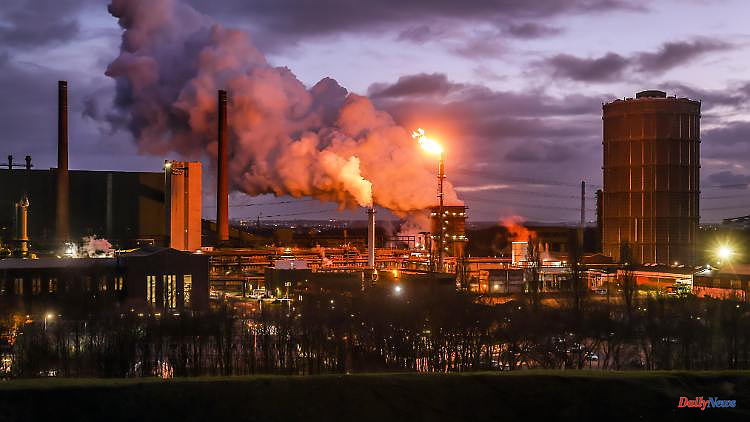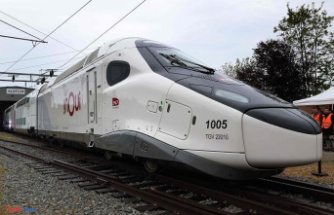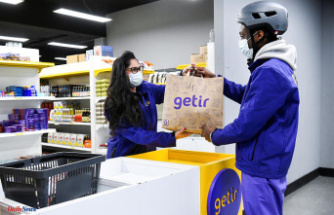The BDI lowers its economic forecast by more than half. And this is still the favorable scenario without disruption of Russian gas supplies. The fact that the industry has been hit so hard by the energy crisis is due to mistakes made in the past, according to Russwurm, head of the association.
German industry with millions of employees has drastically lowered its economic forecast for this year. Growth in economic output in Germany is only expected to be around 1.5 percent - unless there is a gas supply stop and a deep economic crisis. This was announced by the Federation of German Industries (BDI) on the occasion of its "Industry Day". At the beginning of the year, before the start of the Russian war of aggression in Ukraine, the industry had still assumed an increase of around 3.5 percent for 2022. The Leibniz Institute for Economic Research Halle (IWH) also lowered its forecast for economic growth for this year to 1.5 percent. In mid-March, the institute had predicted growth of 3.1 percent.
"The double crisis of the Russian invasion of Ukraine and the effects of the Covid pandemic are causing problems for the industry," said BDI President Siegfried Russwurm. "From today's perspective, accepting massive dependencies as the price for cost advantages and economies of scale was just as wrong as our country forgoing sufficient investments in its own defense capabilities," said Russwurm. "We skipped the fire brigade because we considered the risk of fire to be negligible. Now it's ablaze."
Germany is still dependent on Russian gas and other raw materials. Russia had cut gas supplies through the Nord Stream pipeline in the Baltic Sea. Russwurm said the war revealed Germany's "Achilles heel" as an industrial country: security of supply for energy, raw materials and basic technologies.
Russwurm expects the economy to recover in the sense of a return to the level before the corona pandemic at the end of the year at the earliest. The prerequisite, however, is that Russian gas continues to reach Western Europe. "An interruption would have catastrophic effects on the manufacturing industry and would inevitably send our economy into recession." The company's order backlog is at a record high. However, due to delivery bottlenecks, production is sometimes significantly affected. Uncertain economic prospects and increased uncertainty due to the war also slowed companies' investment activity.
The BDI also corrected the prospects for exports downwards. Growth of 2.5 percent is now expected for 2022, in January the association had predicted an increase of 4.5 percent.
The IWH also referred to ongoing delivery bottlenecks and high inflation - both of which have a negative impact on the economy. The institute expects GDP to decline slightly in the second quarter. The chances of a "strong recovery" would be "significantly reduced" by the war and the associated price increases and interrupted supply chains, the institute said. Exports are also likely to "weaken" this year. For eastern Germany, the institute expects growth of just one percent this year.
Russwurm welcomed Economics Minister Habeck's plans to reduce gas consumption in industry. Instead, more coal is to be converted into electricity. Gas as a "bridge" is necessary, but this bridge will become more expensive. The hope is that it will also be shorter. Renewable energies would have to be expanded more quickly, and the brakes would have to be released for this. The BDI President spoke out against possible legal obligations for private households to reduce gas consumption. He said he thought proposed premiums would make sense for consumers to save on gas.
In view of demands from the Union, for example, for the three remaining nuclear power plants in Germany to run longer than the end of the year, Russwurm was skeptical. The operators themselves would have contradicted this. On the other hand, it is difficult to ask other countries to increase their gas production, but to rule this out in Germany. This is a difficult argument. The initiative came from the FDP to put the ban on natural gas production in Germany through so-called fracking to the test. This involves extracting gas or oil from rock strata using pressure and chemicals, which poses dangers to the environment.












